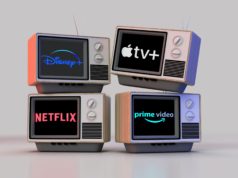 Washington
Washington
– The Federal Communications Commission (FCC) has moved to allow cable and
satellite TV service providers to block consumers from viewing new release
films on analog devices as a means of preventing piracy. Following lobbying by
the Motion Picture Association of America (MPAA), the FCC agreed to allow
implementation of a "Selectable Output Control" (SOC) scheme, which
enables programmers to remotely disable the audio/video outputs on their
set-top boxes.
The effect will be that analog devices and some older HD sets
will not be able to access the video-on-demand films made available at the same
time they are still in theaters, during a 90-day window.
The FCC noted that it
did not grant the MPAA’s full waiver request, which would have extended from
a film’s theatrical release through its DVD release date.
In granting the MPAA’s waiver, the
FCC said that "the service that MPAA proposes would serve the public
interest and that providers of first-run theatrical content are unlikely to
offer the service absent the ability to activate SOC."
Opponents of the
SOC scheme, including rights group Public Knowledge, were dismayed by the FCC’s
move.
"The FCC is allowing the MPAA to control your television," Public
Knowledge staff attorney John Bergmayer told Wired.com.
Related Links:
http://snipurl.com/w4nwj
(PDF: FCC ruling)







